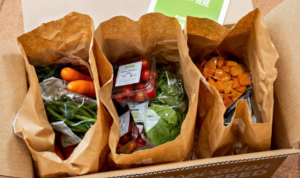Indian online travel agency Yatra Online successfully floated its subsidiary on the India Stock Exchange last September. This IPO allowed $21 million to be added to the coffers of Yatra itself, and $65 million to the coffers of the subsidiary. With this, both parent and subsidiary companies are now extremely well capitalized. Yatra still has a 65% interest in the subsidiary remaining after this IPO. This stake alone is worth nearly $220 million at the time of writing, while Yatra itself has a current market capitalization of less than $110 million. It therefore appears that there is significant undervaluation. Equity Undersecretary struck and included 1,000 shares of Yatra in its portfolio at the current price of US$1.47.

Profile
Note that fiscal years are broken, running from April 1 to March 31.
Yatra Online Inc was founded in 2006 by Dhruv Shringi (the current CEO), Manish Amin, and Sabina Chopra.
The name Yatra means “travel” in Hindi, the most widely spoken language in India.
The three founders knew each other from their careers at ebookers.com, where they held key technical and marketing positions.
Armed with the knowledge they gained, they were able to create a functioning online travel agency in a short period of time.
Within six years, Yatra already had a 30% market share in fast-growing India, ranking second only to MakeMyTrip.
Yatra serves both the business segment and the consumer market, with an emphasis on the corporate market.
The business market in India is particularly interesting because only 5% of all business travel is booked online, so there is still a lot of ground to be gained here.
The combination of business travel and private travel is proving useful; in fact, business customers often turn out to book private travel with the same travel operator, and also vice versa, and so there is cross-pollination.
Yatra appears to have a good reputation; not only is the name very well known in India, but customer reviews are remarkably positive, and the percentage of returning customers is high.
Nevertheless, profit margins are low for now, which is due to the fragmented market in India, making competition very high.
In time, consolidation should lead to less competition, and better profit margins.
Results over the past three years
Table 1 shows that the corona virus outbreak caused revenue to implode by a whopping 82% in broken fiscal year 2021, followed by recovery. Incidentally, the 2023 revenue of $46.6 million is still significantly lower than the $96.3 million recorded in the year before corona, and that means the company is still in the recovery phase. Air tickets accounted for 84% of the total booking amount for fiscal year 2023, followed by hotels with a 12% contribution, and other services with 4%. The margin of air tickets of 8% was over 2023 than the 13% margin of hotels. This is not surprising since competition in the airline ticket market is extremely high. By the way, the margin of other services at 6% is a bit on the low side, but it shows recovery over the first half of 2024.

Results for the first half of 2024
Table 2 shows that the recovery in sales continues, with sales increasing faster than the total booking amount. This seems to indicate that margins are improving somewhat. Incidentally, the optically high net loss in the second quarter is largely due to the one-time costs of the subsidiary’s IPO in late September. In this respect, the net loss below the line was still quite contained at $0.05 per share. It is important, however, that the net loss decreases in the yet-to-be-published third-quarter figures. But more importantly: the operating cash flow before changes in working capital must become positive again as soon as possible, because it is not the intention that money should structurally leave the company.

The financial position
Table 3 shows balance sheet as of September 30, 2023 in U.S. dollars. Total debt is $21.0 million, and compares to a cash position of $57.7 million. This leaves the company with net assets of $36.7 million. When equity of $68.8 million is adjusted for intangible assets, a tangible book value of $59.1 million remains. That works out to $0.92 per share. In summary, this is a very solid balance sheet.

Appraisals
Table 4 shows the valuations for the next two years. Based on broken fiscal year 2025, an EV/ebitda multiple of 8.3x and a P/E ratio of 21.2x then rolls out. It is not expected that dividends will be paid in the foreseeable future.

Conclusion: buy-worthy around $1.50
Based on the valuation multiples just mentioned, investors will not be immediately inclined to run to their computers to enter a buy order.
However, Yatra has been excellently capitalized since the successful IPO of its subsidiary and has good growth prospects.
But regardless, there seems to be a particularly generous margin-of-safety.
Indeed, Yatra’s 65% stake in its Indian subsidiary is already worth $220 million.
However, net debt-free Yatra has a market capitalization of only $110 million, and that effectively means a dollar can be bought for 50 cents.
We therefore consider the stock to be buyable and give it a price target of $3.40, which corresponds to its net asset value per share.
Due to its relatively low market capitalization, an investment in Yatra should only be considered suitable for speculative investors.
SharesUnion is therefore taking a position at half strength, which in our case amounts to 1,000 shares of Yatra at the current price of $1.47.
Author has position in Yatra at time of writing.
Key date
March 26, 2024: release third-quarter figures broken fiscal year 2024 (estimated)
Major shareholders
MAK Capital One: 19.0%
Altai Capital Management: 7.4%
Goldman Sachs: 7.0%
Timothy Maguire: 7.0%
Vinny Smith: 4.8%
Catamount Strategic Advisors: 3.7%
Acuitas Investments: 3.4%
Dhruv Shringi (CEO): 3.3%
Nathan Leight: 3.1%
Core data Yatra
Name:
Yatra Online Inc
Ticker: YTRA
Sector: Travel
Stock Market: NASDAQ
ISIN: KYG983381099
Snapshot price: $1.70
52-week low: $1.40
52-week high: $2.67
US dollar/Indian rupee exchange rate: 83.0
Total shares outstanding: 64.2 million shares
Market capitalization: $109.2 million
Net assets: $36.7 million
Enterprise value (EV): $72.5 million
Tangible book value per share: $0.92
Share price/material book value: 1.8x
Net asset value (NAV): $220 million
NAV per share: $3.40
Heading/NAV: 0.5x
Dividend per share: $0.00
Website: investors.yatra.com



